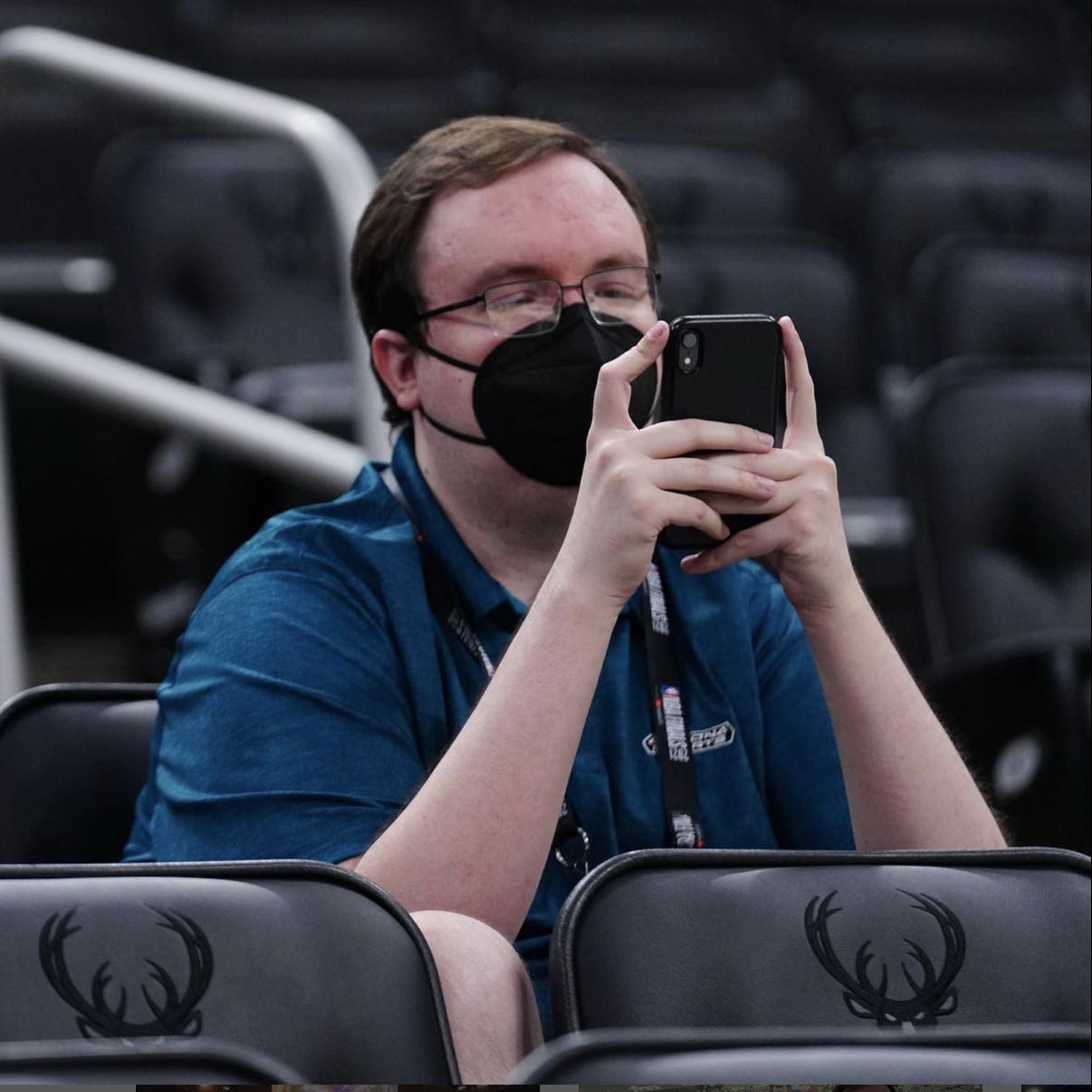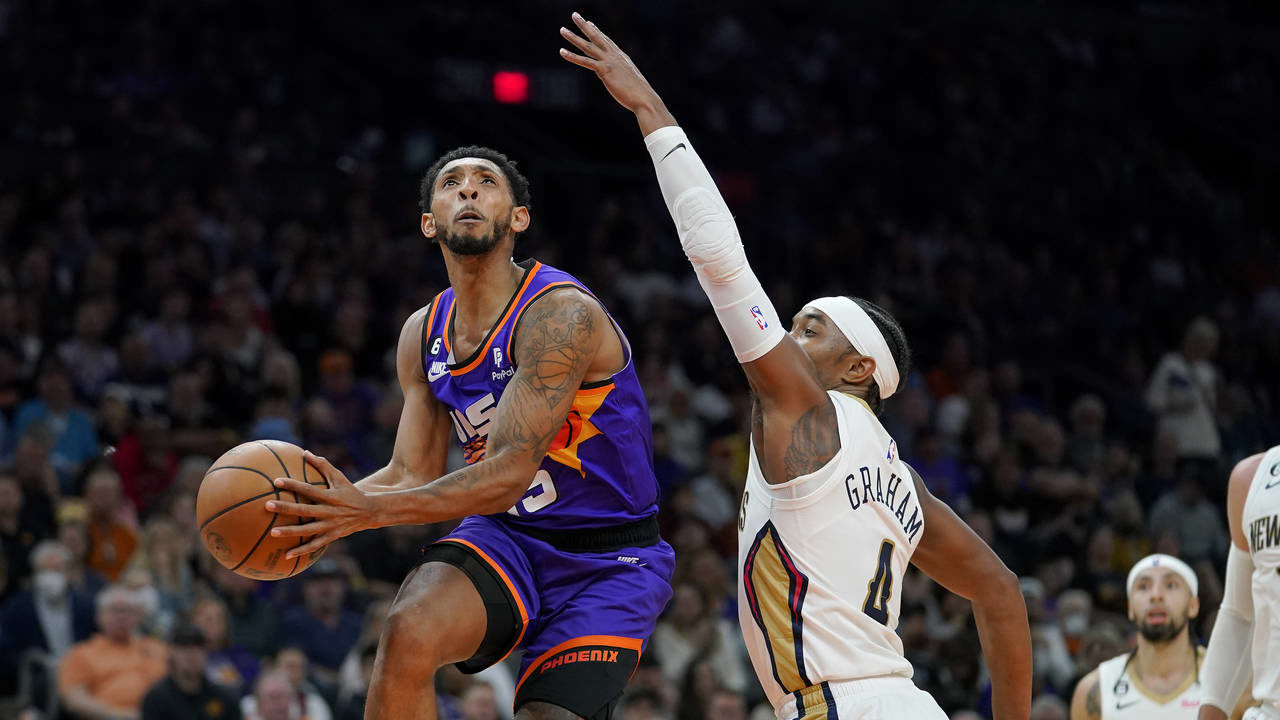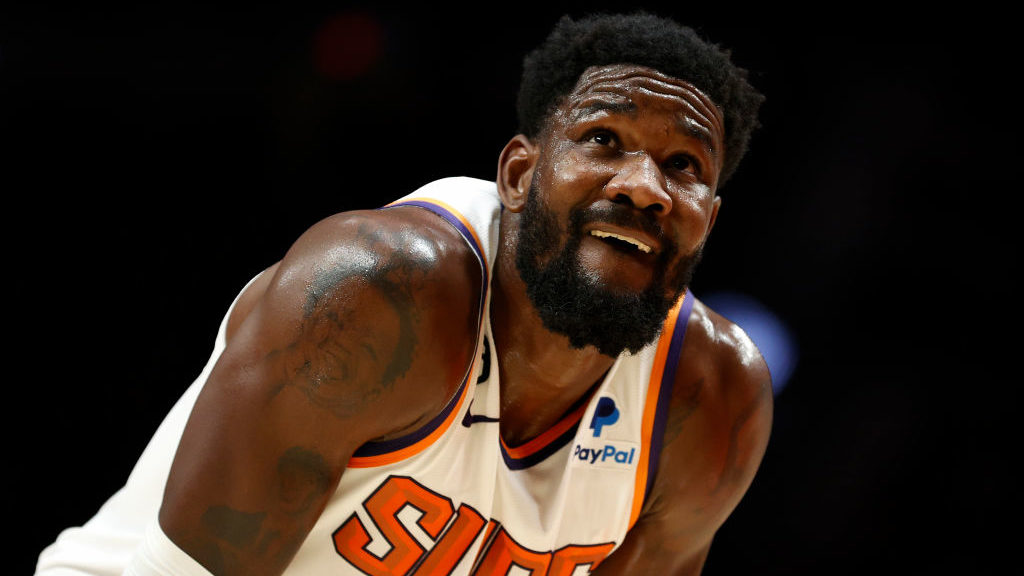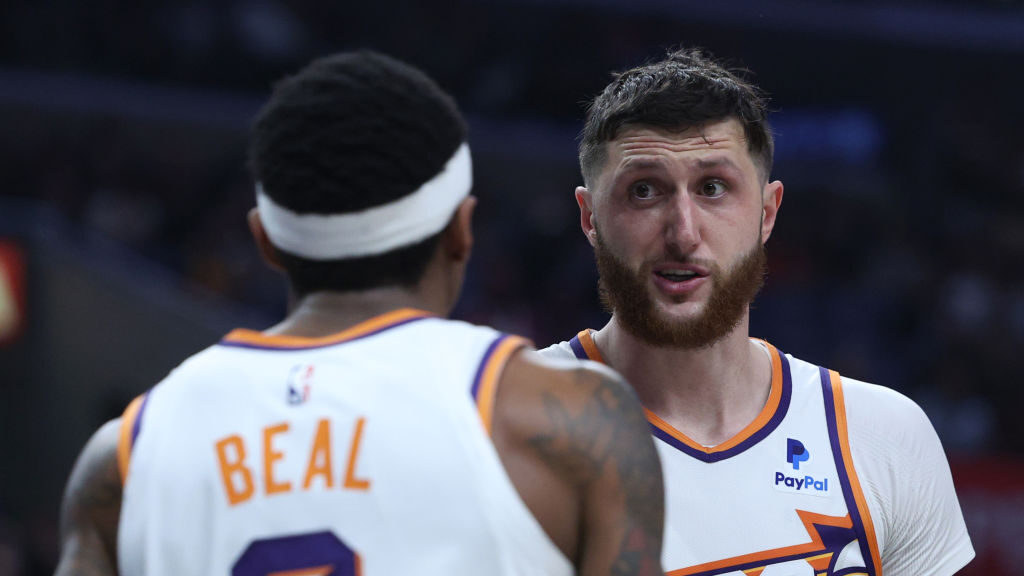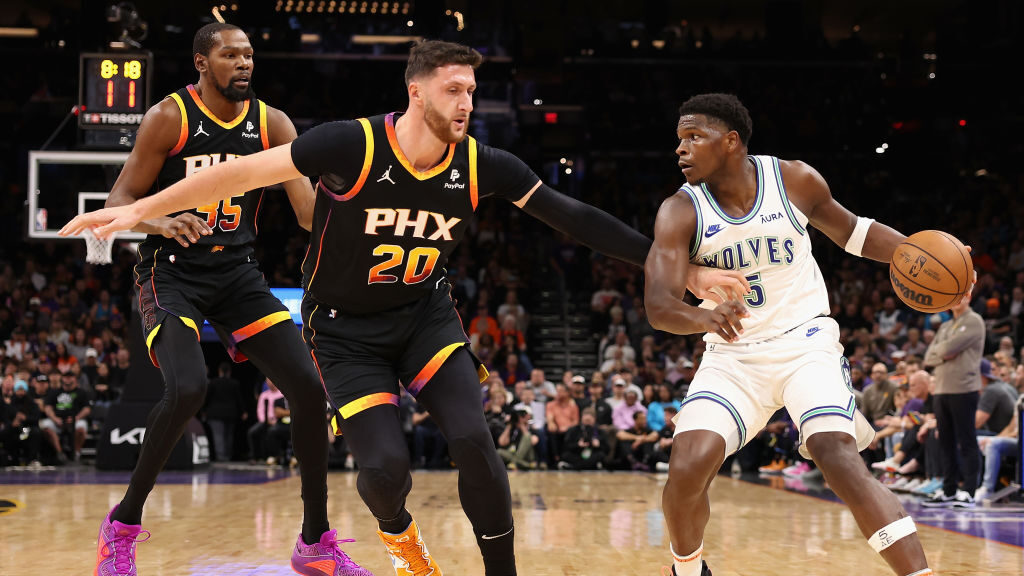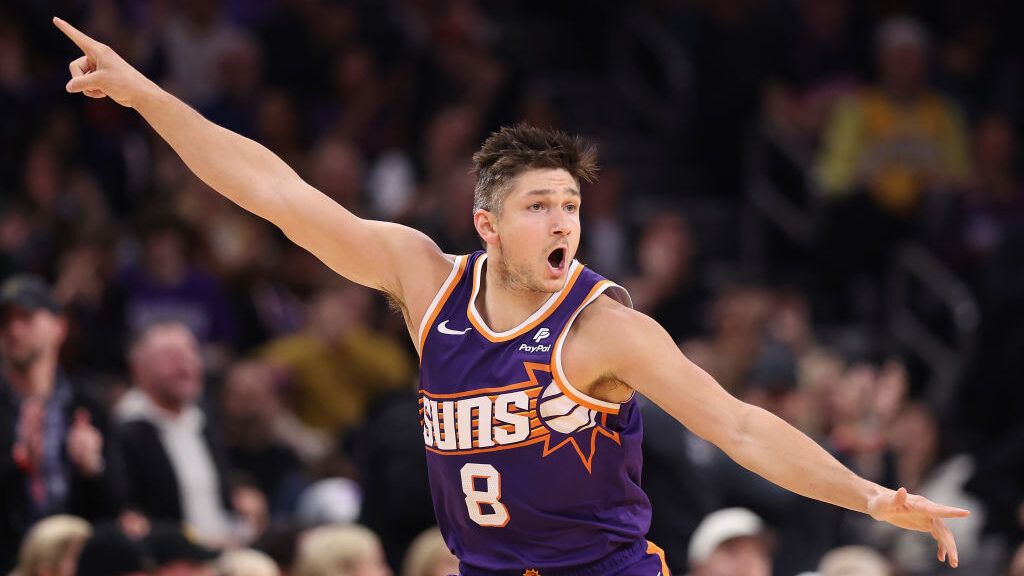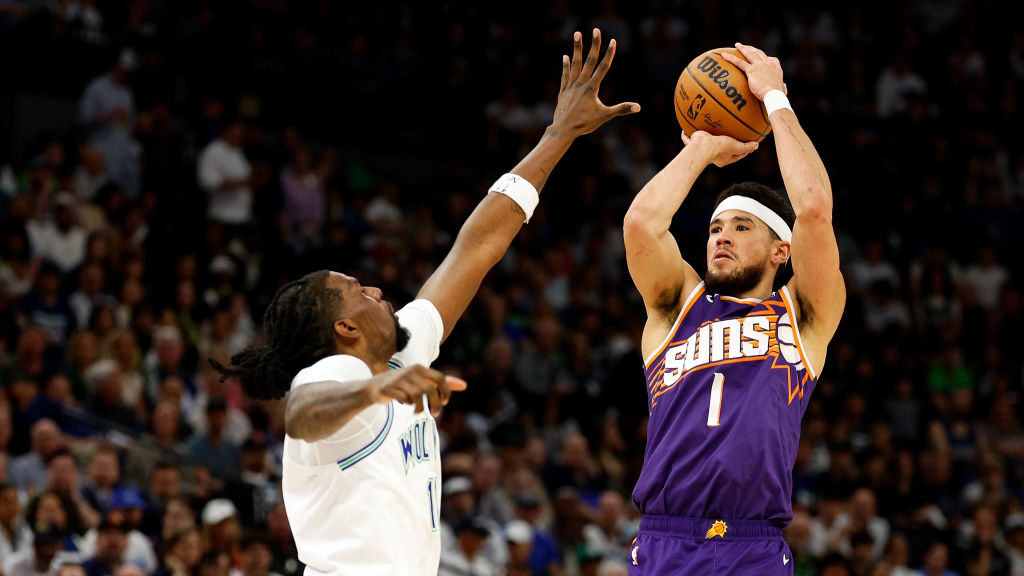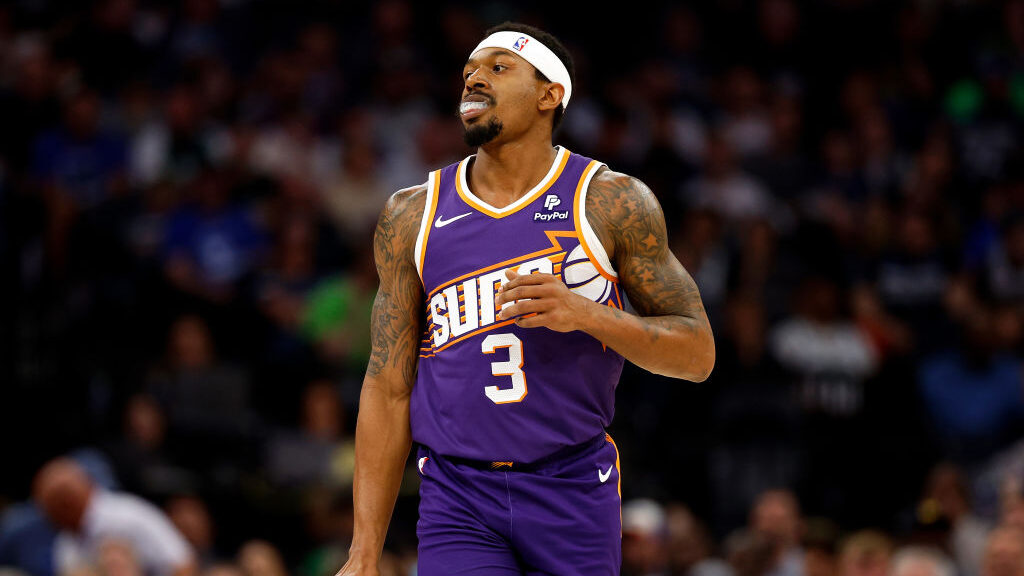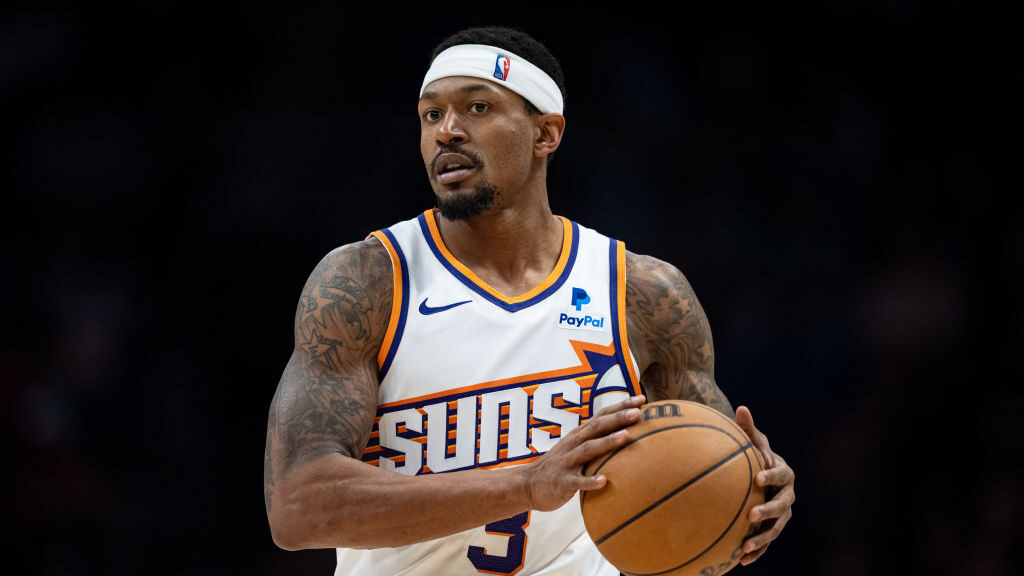Phoenix Suns finding more success between margins on offensive glass
Oct 29, 2022, 4:51 PM
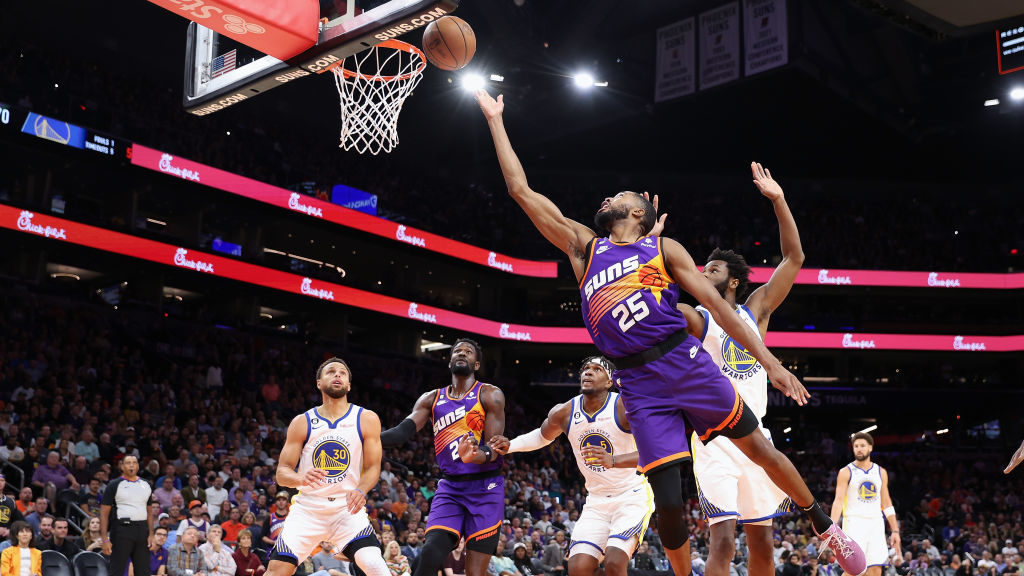
Mikal Bridges #25 of the Phoenix Suns lays up a shot ahead of Andrew Wiggins #22 of the Golden State Warriorsduring the second half of the NBA game at Footprint Center on October 25, 2022 in Phoenix, Arizona. The Suns defeated the Warriors 134-105. (Photo by Christian Petersen/Getty Images)
(Photo by Christian Petersen/Getty Images)
PHOENIX — Monty Williams and Kevin Young talk shop a lot. Sure, the Phoenix Suns’ head coach speaks with his associate head coach all the time in the confines of what the team does. At practice and shootaround, during timeouts and the game.
But then there’s the conversations on the bus rides on the road. There’s the conversations on the phone when Williams can hear Young’s family in the background and tells Young to go be with them right before hanging up.
Something Young, now in his third season with Phoenix, has been prodding Williams about when he can is offensive rebounding.
A base level basketball concept to understand about crashing the offensive glass is the basic math and strategy behind it.
With the 2022 version of the game mostly consisting of four perimeter players and one interior player, it’s usually that one guy sticking around to see if he can get his hands on the ball. If a shooter in the corner, let’s say Suns forward Cameron Johnson, streaks in and doesn’t get the ball, all while his man is getting out in transition, Phoenix is exposed off the miss. 4-on-3, 3-on-2 and so on.
Take the New Orleans Pelicans for example, the Suns’ opponent in a win on Friday night that is arguably the best offensive rebounding team in the NBA.
Pelicans guard Jose Alvarado takes this drive inside and doesn’t convert on a layup. Center Jonas Valanciunas tries to get his paws in there and nearly gets the ball.
But as an example of how quickly this numbers game can turn, wing Trey Murphy III — a more avid offensive rebounder this year — goes for the loose ball and doesn’t get it.
Here is how easy the end product becomes for the Suns after that:
A possession or two like that, with one too many guys going for the ball instead of getting back on defense, could swing the game. That has been Williams’ worry.
“When he came here he was adamant about it and I was like, ‘Ehhhh,'” Williams said Saturday after practice of Young’s insistence. “(I was) wanting to get back on defense.”
Five games in, though, Young’s convincing came through and the very early returns are encouraging.
The Suns prior to Saturday’s action rank seventh in offensive rebounding percentage at 32.2%, a huge bump from 21st (26.4%) a year ago and 25th (24.8%) two seasons prior, according to NBA.com.
Most importantly, Phoenix’s transition defense has remained sturdy. It is fourth in points per 100 possessions allowed in transition after placing tied for second and sixth the last two seasons, respectively, per Cleaning the Glass.
In their last three games, the Suns have 41 offensive rebounds and at least 13 in all three contests. That only happened twice last year across a three game stretch.
The Suns currently have six players averaging at least one offensive rebound per game. Three of them are the centers — Deandre Ayton, Jock Landale and Bismack Biyombo — but there’s also Mikal Bridges (1.8), Torrey Craig (1.6) and Johnson (1.0).
While again reiterating it’s less than two weeks in before we soak too much of these statistics in, those would be career highs for all three.
Bridges, in particular, has always had a knack for getting to 50/50 balls and knows how to use his long arms to come down with ’em.
Craig, however, is a guy where it is one of his defining skills. He’s one of the best at it in the league with his position, and granting him more freedom there is a big plus while his rotation role remains in place.
“It unleashes Torrey,” Williams said. “It allows for him to use his athleticism. Last night he was rebounding and scoring. He has a nose for it.”
Williams said it’s a “weird process” because, to go back to the basic concept, the number one thought is stressing about the negative effects on their transition defense. But Williams noted how they’re noticing that it’s actually making it more difficult for other teams to run since they have to be concerned with boxing out.
“So far we like the trend, we like the physicality that we’re bringing to the table, and we like the fact that if you can go into a game thinking you’re going to get five to seven more possessions, you’ll take that,” Williams said.
The origin of this goes back to the year Williams and Young spent together on the Philadelphia 76ers coaching staff, where they had a list of “go guys” and “get back guys.”
Johnson provided his thought process as someone who can be a go guy.
“The hardest thing about crashing the boards is if you’re on the outside maybe waiting for a 3 — to run into the paint takes up energy, to fight for it takes up energy, then you have to sprint back even harder,” he said Saturday. “The defense takes up energy. That’s probably the trickiest thing about it. Other than that, it’s just reads, seeing where the ball goes.”
Johnson pointed out it’s just about making that split-second decision of if the opportunity is there. That’s something he said Craig is terrific at, picking up on when his man isn’t in front of him and taking advantage of the extra space you saw earlier.
“I’m an aggressive offensive rebounder, so whenever I see a shot go up, I just play off the front foot,” Craig said postgame Friday. “Been a habit of mine throughout my career.”
It’s one small part of the box score to keep an eye on, a margin of the game (within the game) that could benefit the Suns this season.
So has Young been touting his victory to Williams, with his persistence paying off?
“No because he’s smaller than me,” Williams joked. “Just take the win and keep it moving.”

